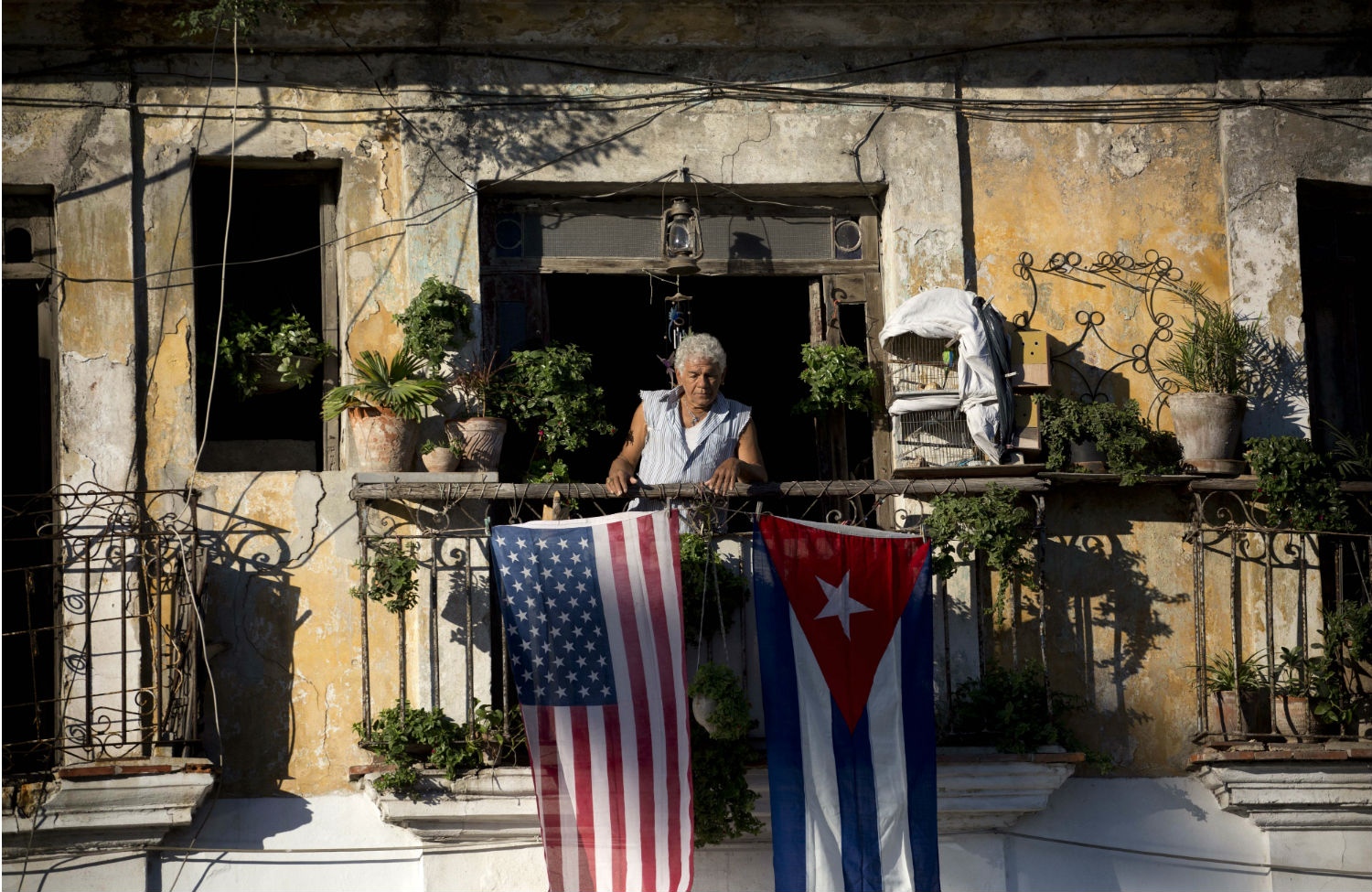Writing for The Nation, Andrés S. Pertierra takes issue with American leftists who have developed the habit of saying something insidiously awful about Cuba’s newfound relationship with the US: “I have to go before they ruin it.” They, of course, refers to Americans, their wealth and corporations. Pertierra writes about Cuba’s push toward modernization, and breaks down how compassionless it is for American leftists to act as if the nation is their own private Cold War time machine. Read in partial below, or the full version via The Nation.
The problem does not lie with those who worry that in the push to modernize Cubans will forget how precious these achievements are. The problem lies with those who see Cuba’s leaving behind its economic backwardness and relative isolation as an opportunity to plant their flag in its soil.
For these Americans, Cuba exists solely as an idealized socialist paradise, in almost complete stasis since the Cold War, which has yet to be befouled by the corrupting influence of other Americans. For them, the island nation is the land of the noble savage on the verge of contact with the advanced but impure outside world, sure to despoil its backward, but charming, ways. These people don’t want to see the real Cuba. They want to be able to say that they were there before it got Americanized.
This hipster-colonialist vision of the island isn’t new. Americans have been projecting their vision of what Cuba is and should be onto the real Cuba for centuries. Historian Louis Pérez Jr. showed in his 2008 book Cuba in the American Imagination how Americans viewed Cuba through the lens of political cartoons, first as a damsel in distress to be rescued from vile but ultimately masculine Spain, then as a small black child who needed to educated and civilized by a paternalistic Uncle Sam. These depictions of Cuba articulated the flawed and presumptuous way in which many Americans perceived the island and reinforced such notions by giving them form and reproducing them through mass media.
Today the American colonialist vision of Cuba is more tactful and therefore more insidious than before. Instead of promising to fulfill the “white man’s burden” by elevating Cubans to the higher realms of civilization, it insists that Cubans remain as they are, even as economic backwardness results in immense human suffering. Because it views Cuba in terms of its own needs, as an open-air Cold War museum, and not in terms of Cubans’ well-being, the hipster-colonialist mindset resents that Cubans are working to change their circumstances.
The idea that late-20th-century Cuba was isolated is largely a myth based on the fact that it was isolated from the United States. It was quite well-connected, however, with the rest of the Third World and especially with the Soviet bloc until the 1990s. Since then, tourists from Europe and Canada have regularly visited the island in the hundreds of thousands each year.
While there is certainly a lack of personal experience of First World capitalism on the island, this does not equate to an innocence of extreme poverty. The so-called período especial (Special Period) that followed the collapse of the USSR was characterized by rolling blackouts, near starvation (vitamin deficiencies that led to blindness), and widespread scams. In the early years of this century life had gotten better, but everyday Cubans without family to send remittances from the First World or a job with access to tourist money still had an extremely difficult time. Doctors in an ostensibly free health-care system relied on “gifts” to supplement meager incomes. Mathematicians and physicists became taxi drivers or began selling peanut brittle as an illegal side business just to get by. Others lived by reselling black-market cheese or meat at elevated prices, which benefited from and worsened the already-existing misery and scarcity that characterized everyday life. Sex tourism continues to plague Cuban society, with underage boys and girls caught up in distressing numbers. Countless Cubans were involved in scams, considered part of the lucha (struggle), which they perpetrated on their fellow citizens and tourists alike; they were both victims of poverty and participants in worsening the problem. All of these means of survival carried the danger that on any given day they could get arrested, their black-market income and property seized, and the possibility of years behind bars laid before them.
*Image: Javier Yanez stands on his balcony where he hung an American and Cuban flag in Old Havana, Cuba. (AP Photo / Ramon Espinosa)
